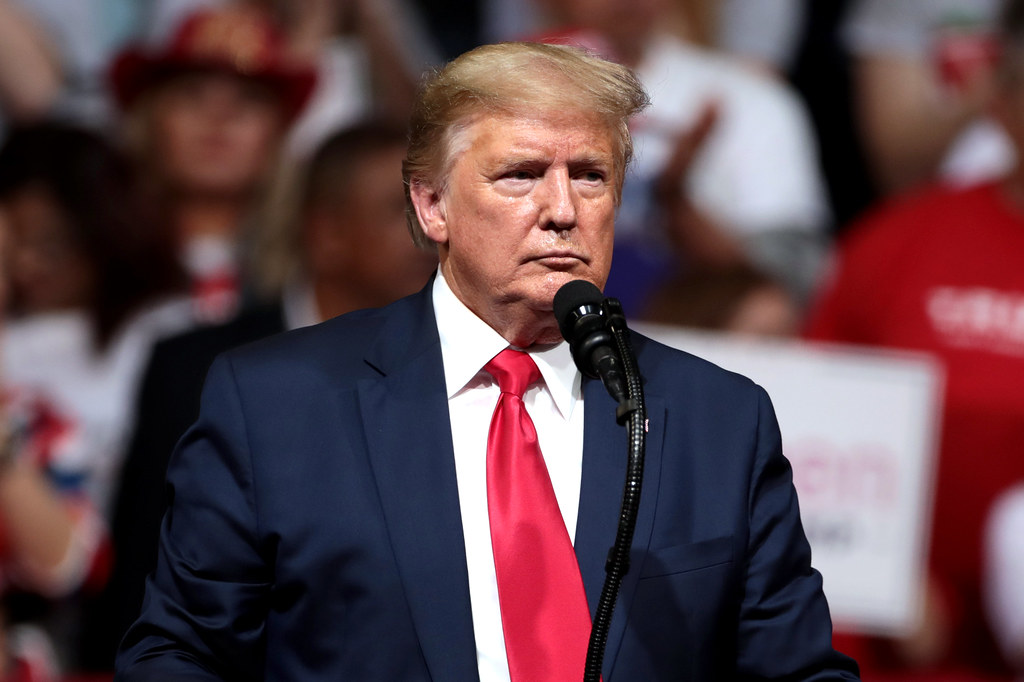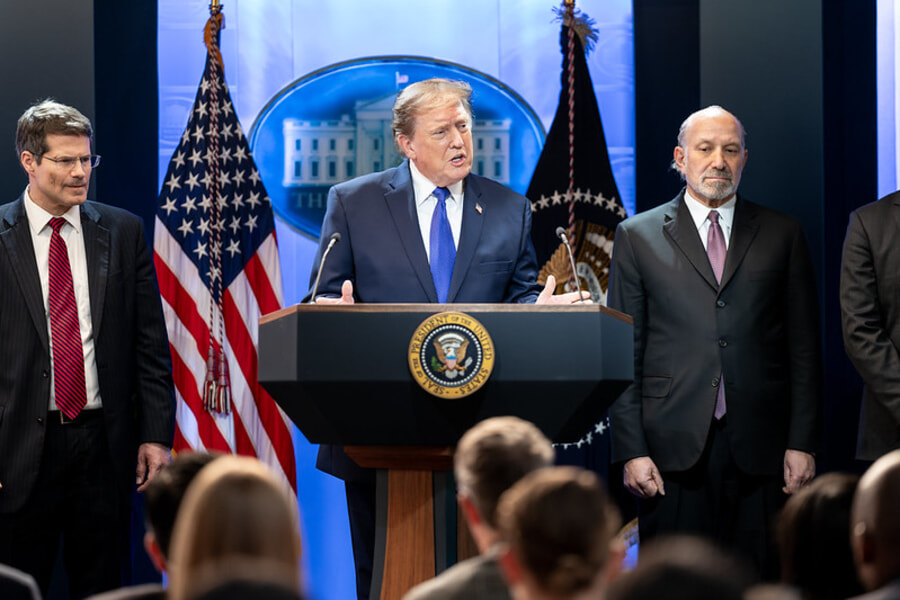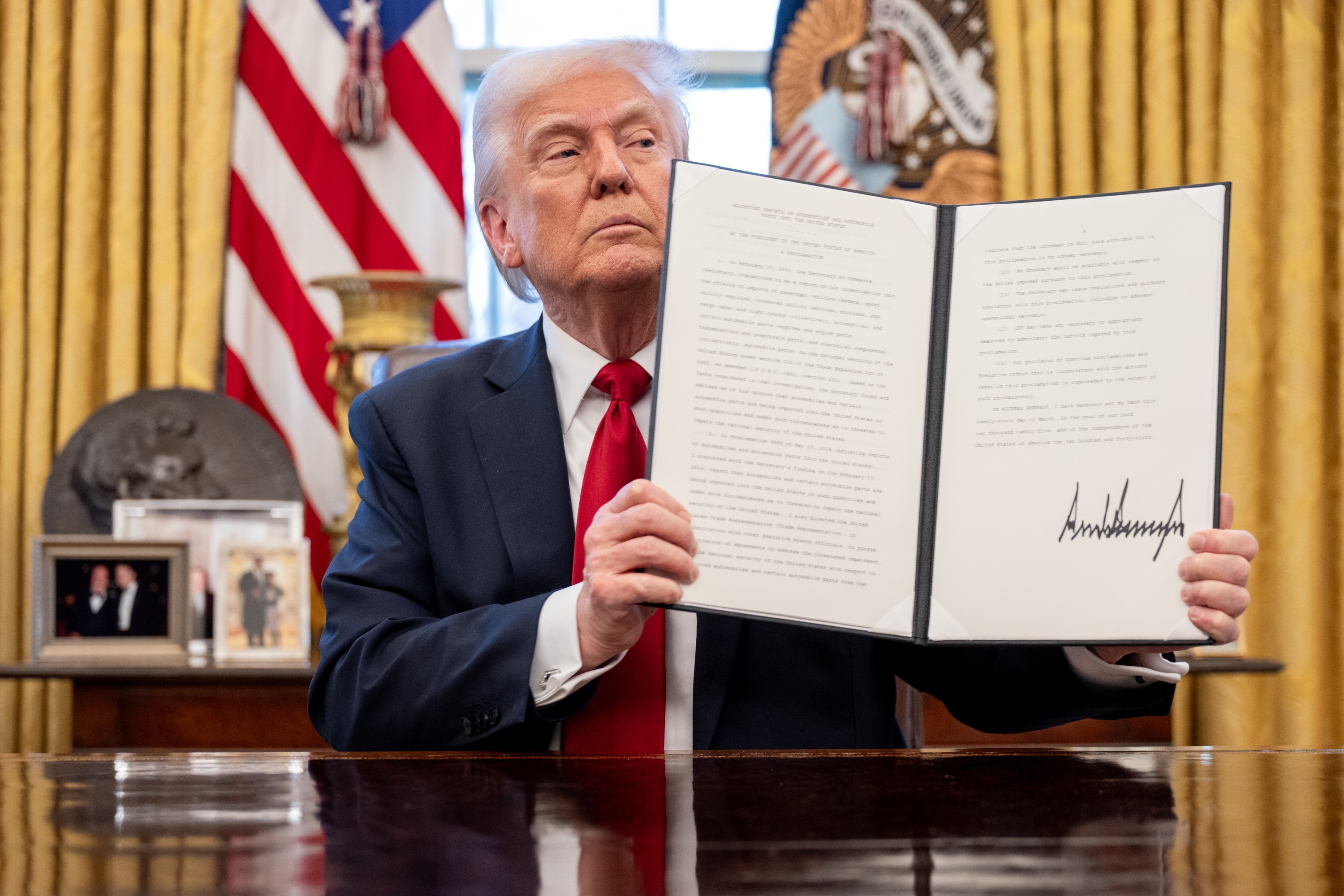The Paramount and Global Law Firm Settlements With Trump Don’t Constitute Bribery
Bribery law requires an unambiguous intent to influence a public official’s action through money or something else of value.

Editor’s Note: You can find a discussion of this piece on the Lawfare podcast here.
Last week, Paramount Global agreed to pay $16 million to President Trump to settle a news distortion lawsuit filed by then-candidate Trump. In the suit, Trump claimed that Paramount’s CBS News program, 60 Minutes, deceptively edited Kamala Harris’s October 2024 interview to boost her chances of winning the presidential election. The fallout from the settlement has been swift, with journalists and First Amendment experts lamenting the legitimization of a frivolous legal claim designed to censor and chill journalism that Trump disfavors.
In addition to the First Amendment outcry, several members of Congress have called for a criminal bribery investigation. Paramount is awaiting Federal Communications Commission (FCC) approval of a proposed multibillion-dollar merger with Skydance Media. Paramount’s settlement with Trump has been linked with its proposed merger as part of a theoretical quid pro quo.
These allegations of bribery echo earlier claims that the agreements between several top global law firms, including Paul Weiss, and the Trump administration were also corrupt. Paul Weiss and other firms agreed to provide hundreds of millions of dollars in pro bono services to causes supported by the administration in exchange for withdrawal or avoidance of executive orders targeting the firms.
Both of these scenarios risk potentially lasting damage to fundamental constitutional rights such as the freedom of speech, freedom of the press, due process, and the right to counsel. In federal district court, several of Trump’s executive orders targeting law firms have already been held unconstitutional. His lawsuit against Paramount also seemed legally dubious, likely to be dismissed for failure to state a valid legal claim.
But despite the illegality of Trump’s attacks on law firms, the frivolity of his suit against Paramount, and the repugnance of the administration’s efforts to violate core constitutional protections, neither of these scenarios amounts to criminal bribery.
Bribery, as defined by federal law, is a corrupt offer to—or solicitation by—a public official of anything of value, in exchange for official action. Bribery requires a corrupt mens rea, which, while not defined precisely by the Supreme Court in the context of bribery, generally equates to a specific intent to trade a thing of value for an official act with a wrongful purpose.
An offer made merely to ingratiate or with a generalized hope of future official benefit is insufficient. Bribery law requires an unambiguous intent to influence a public official’s action through money or something else of value.
Starting with the Paramount settlement, there is no evidence of a corrupt offer or solicitation. Paramount has a motive to gain favor with President Trump to obtain FCC approval of its proposed merger with Skydance Media. And Paramount has entered into a settlement of Trump’s news distortion lawsuit that appears to pay him far more than what the law would have required. But these facts indicate only a likelihood that Paramount was influenced to settle the lawsuit by its desire for FCC approval. Offer-side bribery requires influence to be exerted or attempted on the public official. Mere contemplation by the private party of political favor to be gained is not enough. Without some implicit or explicit offer expressed to the public official or a proxy linking a proposed payment to a desired official action, there can be no offer-side bribery.
Without the requirement of an actual offer, every company or individual with any business pending before the federal government would be subject to a bribery charge for any commercial or personal dealings with Trump or his expansive network of businesses that appeared favorable to the president. Bribery law requires a specific corrupt offer to ensure that strategic business decisions with political implications are not criminalized without evidence of criminal intent.
A solicitation-side bribery theory fares no better on these facts. There is no evidence that President Trump or an intermediary suggested that FCC approval of Paramount’s proposed merger would be influenced if Paramount settled the 60 Minutes lawsuit on terms favorable to the president. Trump’s more general statements and actions, arguably announcing to the world that he must be compensated for any beneficial action from his administration, are too generalized to sustain criminal corruption charges. Unsound extensions of criminal corruption law and departures from historical enforcement risk reinforcing, rather than combating, the erosion of constitutional protections that the Trump administration has initiated.
Further compounding the lack of allegations of a corrupt offer or solicitation is the open and notorious nature of the Paramount settlement. The settlement is public. Armies of lawyers on both sides presumably reviewed the agreement, with full knowledge of the pending FCC approval. Bribery agreements are typically concealed from lawyers and hidden from the public. Where parties transact openly and transparently, corrupt intent rarely exists and is exceedingly difficult to prove. An assumption of criminal intent when faced with facts that are equally susceptible to a legally innocent explanation, if not more so, treads a dangerous path.
If additional facts develop suggesting that Paramount did convey an offer to the Trump administration of a favorable settlement in exchange for the merger approval, bribery charges could be viable. And even if no offer was ever made, an internal Paramount agreement to convey such an offer could support conspiracy charges. Similarly, if facts emerged that Trump or an intermediary conveyed to Paramount that a favorable settlement of the 60 Minutes lawsuit would help its prospects with the FCC, a solicitation-side bribery or extortion charge could be provable, putting aside the limits on charging a sitting or former president. But Paramount’s internal recognition and hope that the settlement agreement might influence the merger decision, alone, is insufficient to constitute bribery.
The previous calls for bribery investigations into several international law firms’ settlements with the administration to resolve or avoid adverse executive orders face a distinct but even greater fatal flaw.
Unlike Paramount, Paul Weiss and other firms undoubtedly offered a quid pro quo. The law firms agreed to provide hundreds of millions of dollars of pro bono services for causes supported by the Trump administration in exchange for official action: President Trump’s withdrawing or forgoing executive orders targeting the firms. But the firms were transacting with Trump in his official capacity as president of the United States, not as a private individual. In other words, the law firms were not offering Trump a private benefit. The thing of value offered—pro bono services—was a benefit to the administration, not to Trump in his personal capacity.
Such quid pro quo deals between individuals or companies and executive branch agencies are struck frequently. Defense contractors agree to pay fines to avoid debarment. Health-care companies agree to pay fines to avoid exclusion from Medicare. Individual defendants agree to cooperate in federal criminal investigations to avoid criminal charges. In these scenarios, something of value is undoubtedly provided in exchange for official action, but the payments are made for institutional, official benefit for the government, not for the private gain of a public official.
President Trump arguably benefited from the law firm settlements through proliferation of his political agenda, but he did not receive a private benefit. Regardless of the political advantage conferred, bargaining and other official negotiations to resolve government enforcement do not satisfy bribery law’s requirement of corrupt intent and private value.
The United States Court of Appeals for the Seventh Circuit addressed similar concepts in United States v. Blagojevich, overturning corruption charges stemming from then-Illinois Gov. Rod Blagojevich’s offer to trade the Senate seat vacated by then-President Barack Obama for a position for Blagojevich in Obama’s cabinet. The Seventh Circuit observed that “[i]t would not be plausible to describe a political trade of favors as an offer or attempt to bribe the other side.” The court’s decision was rooted in the fact that Blagojevich was operating in his official, institutional capacity and did not receive a private benefit. Similarly, official negotiations to resolve government enforcement or other institutional actions do not involve private benefits and do not constitute bribery.
Executive branch attacks on the United States’s democratic principles, constitutional protections, and institutional norms should be met with the full resistance of the legislative and judicial branches, the legal community, and voters. But criminal enforcement is often, if not always, ill-fitted to address inherently political conduct, even where civil violations of law have occurred. Criminal corruption statutes are powerful tools—they should not be overextended or misapplied. Otherwise, we risk compounding the harm inflicted by unlawful and unethical executive branch actions.





